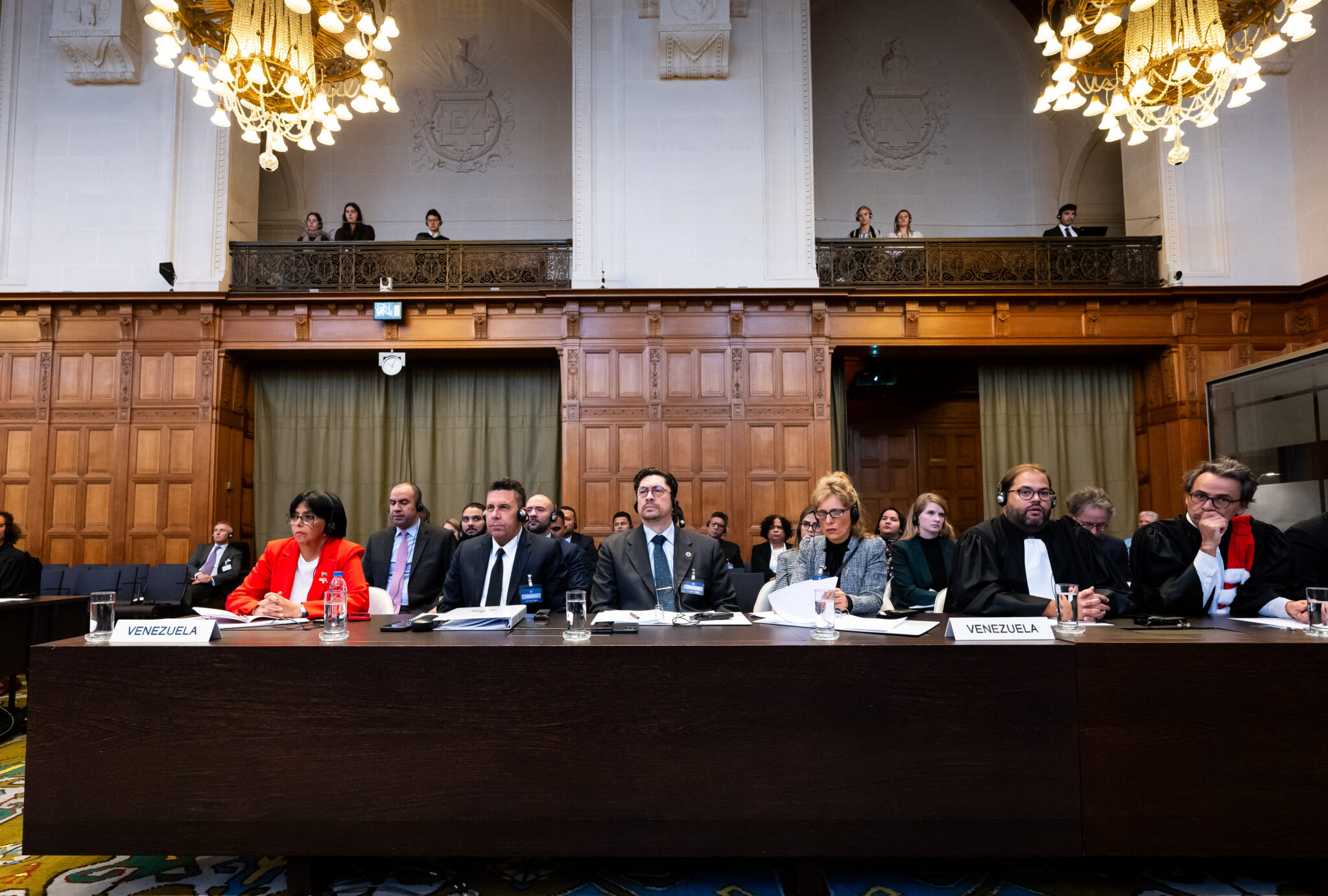A ruling on the request made by Guyana for provisional measures to block questions outlined in Venezuela’s December 3 planned referendum will be made on Friday by the International Court of Justice (ICJ).
A release from the World Court said, “A public sitting will take place at 3 p.m. at the Peace Palace in The Hague, during which Judge Joan E. Donoghue, President of the Court, will read the Court’s Order.”
The official request was filed on October 30, for provisional ICJ measures, in the case concerning the Arbitral Award of 3 October 1899 (Guyana v. Venezuela), as outlined in Article 41 of the Court’s Statute.
Guyana asserted that on 23 October 2023, the government of Venezuela, through its National Electoral Council, published a list of five questions that it plans to put before the Venezuelan people in a ‘Consultative Referendum’ on 3 December 2023.
Guyana-Venezuela land boundary was settled 124 years ago
The primary objective of the referendum, according to Guyana, is “to obtain responses that would support Venezuela’s decision to abandon the current proceedings before the Court and instead resort to unilateral measures to ‘resolve’ the controversy with Guyana. This would involve formally annexing and integrating into Venezuela all of the territory at issue in these proceedings, which comprises more than two-thirds of Guyana.”
Guyana contends that Venezuela should not proceed with the consultative referendum planned for December 3, 2023, in its current form and must refrain from including the first, third, or fifth questions in the consultative referendum.
Guyana also contends that Venezuela should not include any question within the consultative referendum, or any other public referendum, that encroaches upon the legal issues that are to be determined by the Court in its judgment on the merits. This includes but is not limited to, matters concerning the legal validity and binding effect of the 1899 Award, sovereignty over the territory between the Essequibo River and the boundary established by the 1899 Award and the 1905 Agreement, as well as the purported creation of the State of ‘Guayana Esequiba’ and associated measures such as the granting of Venezuelan citizenship and national identity cards.
Guyana wants Venezuela to refrain from any actions intended to prepare or allow the exercise of sovereignty or de facto control over any territory that was awarded to British Guiana in the 1899 Arbitral Award.
Venezuela, Guyana contends, should avoid any actions that might exacerbate or extend the controversy before the Court or make it more challenging to resolve.
Venezuela has repeatedly said it does not recognize the World Court as the authority to resolve the controversy, despite its participation in the proceedings.
Maduro’s main presidential challenger prefers World Court process to resolve Essequibo controversy
Its recent wave of aggression kicked off after news of Guyana’s oil block auction hit the media. Threats from the highest level of the Venezuelan government were leveled at Guyana and even the oil companies participating in the auction. Venezuela troops have also been posted at the shared border.



